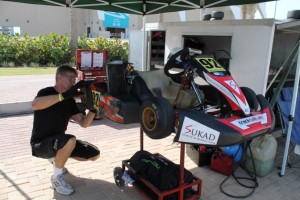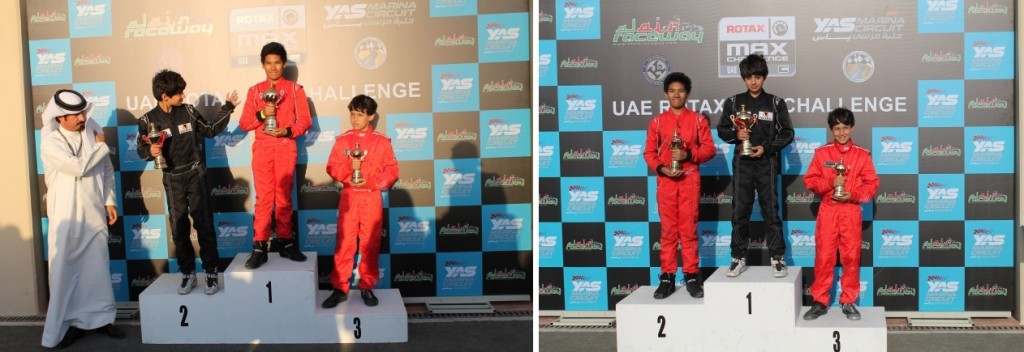A while ago we published a blog called “performance and state of mind, lessons learned from sports”. In it we discussed how a focused mind could overcome big challenges and push people beyond their limits, while staying in control, and how relentless preparation and training can help achieve this state of mind.
In this blog we discuss how our decisions can determine the outcomes of things in life, for better or worse, and how we have to live with those decisions. It also illustrates that it is never too early to make the right decision.
Sports as learning environment
I believe sport originated as an activity to keep people alert and competitive in times of peace, whilst promoting a spirit of brotherhood. Through competition it simulated the battlefield where competitors continuously pushed each other’s boundaries. Today this is still visible in disciplines such as wrestling, boxing, steeple-chase, equine sports and javelin, to mention but a few. It seems nothing helps people push their boundaries like the element of competition, which means sports is also an ideal learning environment.
My youngest son Alain, aged 12, races karts in the UAE national Rotax Max Championship (UAE RMC), and on March 22-23, 2013 there was a double header kart race weekend at Yas Marina Circuit, Abu Dhabi.
This weekend was quite unique as it was said to be the first time in the world that an RMC championship race was held partly on a Formula 1 GP circuit. Also, there had been no practice so everyone had to feel the circuit for the kart setup on the first race day itself.
The purpose of this blog is not to give an account of this race weekend[1]. Suffice to say that Alain and his championship rival Tehmur Chohan were dominating most races in their class, and Alain narrowly won the Friday finals, following a brave out-braking maneuver on the last lap.
It may be worth mentioning that in this “Mini Max” category for drivers aged 10-12, water-cooled 125 cc two-stroke engines are used, and that their average speed around this circuit was over 100 km/h! This is a true sport; and not one for the faint-hearted either. Alain was clearly on the pace and definitely on a high by Friday night after his spectacular victory. On Saturday however things were different: the track temperature was higher and we initially struggled to find grip. Luckily a breeze started cooling the surface down later in the day, and with some last adjustments to the kart he was ready for another great final.
Friday’s scenario looked like repeating itself with Tehmur, who started on pole, leading most of the race but Alain lapping slightly faster towards the end and catching him. So at the start of the last lap, Alain made a rather ambitious move going into turn 1, but the karts touched and both spun off. Luckily there was ample run-off space and they both came to a standstill unharmed.
The chasing racers were some way behind, and by the time they both got going again, they were still in the lead, this time with Alain first and Tehmur second. But then Alain slowed down and let Tehmur pass him again, and so they finished the race in that order.
As father, mechanic, ex-racer and sponsor I am understandably very emotional when watching a race (sometimes embarrassingly so), but this time it was different: I was dead calm watching these last lap events unfold. I immediately understood his decision, and whether he did not want his ill-gotten lead in the race because it was unfair or because he was afraid of being penalized, he was mature enough to take immediate corrective action.
What struck me even more was that he had immediate emotional control, something that I myself sometimes lacked in the heat of racing. At that very moment I realized that my 12-year old son was giving his old man, and probably many others, a lesson in self-control and fair-play.
I do not know what the spectators thought, but the commentator was just as amazed about Alain’s behavior as I was. When they finally left parc ferme after the race, there were handshakes and congratulations all around, from parents, spectators and between the young racers. Even though he knew he needed the win to keep his championship hopes alive, Alain was his usual good-humored self, his conduct showing us all that winning should not come at all cost.
I could not feel but humbled by his display of sportsmanship.
The link with Project Management
A while later when the initial euphoria had worn off, I started reflecting on these events, and started drawing parallels with project environments. What exactly had happened here?
- Both Tehmur and Alain were under tremendous pressure to win, in other words to meet their respective stakeholders’ requirements.
- Their respective projects had conflicting interests – the can only be one winner.
- They both knew they had to try and win within the rules, in other words finish their project within its constraints.
- They were on the last lap, time was running out – this sounds familiar!
- Alain tried to overtake and it went wrong; but by sheer luck he came out for the better. Believe it or not, this happens in life more than we think. The old Spanish saying “El mundo es de los audaces”, or “The world belongs to the bold” testifies to this. The bold, not the fair, or the just, but the bold.
- Alain then decided to relinquish his unfair advantage and restore the status-quo.
Whether we act as individuals, businesses, departments or organizations, how often, by luck or by design, do we cause trouble for others while benefiting ourselves? And how seldom do we acknowledge it, let alone correct it? A simple example may be luring resources away from other projects to come and work on ours.
Corporate governance, project governance and ethics
Today, ethics is an intrinsic part of management everywhere and as such forms part of most if not all project management certifications. For instance, PMI® members and PMP® applicants sign the PMI® Code of Ethics[1] and are bound by it. Ethical behavior as an attitude is fairly easy to understand and endorse, yet as a practice it seems very hard to apply. A reason for this is that it is not an exact science, something which the discipline of corporate governance has learned the hard way.
It is also widely accepted that corporate governance resonates in an organization’s projects, which are often direct investments that need to be governed and reported to the stakeholders in appropriate ways. Therefore, particularly in publicly owned companies, but also in government entities, projects nowadays include “project governance” as a core requirement.
One of the dilemmas in corporate governance of the last 10 years or so is whether it should follow a “comply or else” or a “comply or explain” approach. The Sarbanes-Oxley Act[2] of 2002 endorses the former, while the South African King Reports on Corporate Governance[3] advocate the latter.
It is perhaps in this light that the PMI® Code of Ethics comprises both “Aspirational” and “Mandatory” standards. It is based on 4 core values of Responsibility, Respect, Fairness and Honesty, and identifies various aspirational and mandatory standards to uphold them.
One of the former, clause 2.2.4. states that: “When we make errors or omissions, we take ownership and make corrections promptly. (…) We accept accountability for any issues resulting from our errors or omissions and any resulting consequences”[4].
Without knowing it, this is what Alain, a 12 year old, applied in his racing trade. And in doing so, inspired me and perhaps others to think again of the rules of the game, the rules of life.
Ethics and project success
So is it far-fetched to conclude that similar behavior in work environments, and especially in high-strung project environments, may have the same inspirational effect, and is therefore a true and rare leadership trait?
Or, to go the last step: is it not simply indispensable for project success? I read on our linkedIn group on project success recently a comment that says that the one and only success factor is whether the business case was met. No matter at what cost? No matter how many bodies we have left in our wake? How does that ensure continued organizational success and the growth of our people?
Let me re-iterate: project success is when all stakeholders have benefited, or when the ones that have lost have been adequately compensated (such as in expropriation of land for a highway or a dam project). Therefore we need to measure at many different levels and apply many different criteria.[5]




Trackbacks/Pingbacks